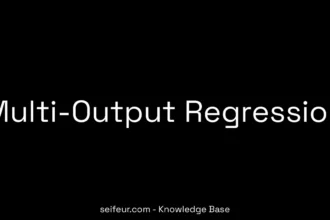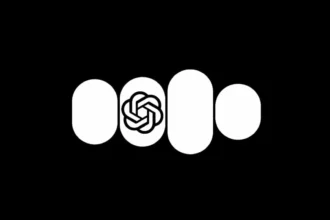Table of Contents
ToggleGroq vs Grok: Understanding the Key Differences
Groq and Grok are distinct entities within the AI ecosystem, each serving unique roles: Groq develops AI acceleration hardware focused on rapid inference, while Grok is a consumer-facing chatbot emphasizing ethical AI interaction. Their near-identical names have caused confusion and legal disputes, but their functions and market positions differ substantially.
Company and Product Identity
Groq is an AI chip company founded in 2016, specializing in Language Processing Units (LPUs). These chips claim to outperform traditional GPUs, including those from Nvidia, by accelerating AI inference tasks.
Grok is a chatbot developed by Elon Musk’s xAI. It focuses on offering conversational AI grounded in ethical principles and constitutional constraints. Grok is designed primarily for user interaction, differing fundamentally from Groq’s hardware-centric approach.
Technical Differences
| Aspect | Groq | Grok |
|---|---|---|
| Core Technology | Language Processing Units (LPUs), specialized AI chips for fast inference | Large language model-based chatbot with ethical guidelines |
| Performance | Processes 247 tokens per second; up to 13x faster than Microsoft’s standard infrastructure | Designed for interactive dialog, focusing on reasoning and ethical behavior |
| Role | Inference backend accelerator enhancing AI model speed | User-facing chatbot providing conversational AI services |
Groq’s LPUs bypass bottlenecks seen in GPUs and CPUs, such as compute density and memory bandwidth limits. This leads to faster inference performance, enabling chatbots like Grok and others to operate with improved speed. In contrast, Grok itself is a chatbot model focusing on interactive experience and ethical AI dialogue rather than hardware acceleration.
Use Cases and Market Position
- Groq: Powers the infrastructure behind AI applications, targeting enterprises requiring fast, efficient AI inference. Applications span autonomous vehicles, financial trading, and real-time AI communication.
- Grok: Aims to enhance everyday user interaction with AI through conversational interfaces shaped by constitutional principles and ethical AI aspirations.
The market sees Groq as a foundational technology company, while Grok serves more as a consumer engagement tool.
Brand Confusion and Legal Dispute
The similarity in names—Groq and Grok—has led to legal complexities. Groq secured a trademark in 2016 for its name and has challenged xAI over Grok’s name, arguing that the difference of one letter is insufficient to avoid confusion in the AI industry.
This legal action highlights the importance of clear branding in the crowded AI space. If Groq succeeds, it will protect its market identity but might limit Musk’s brand choices. If Grok emerges victorious, Groq’s unique standing could face dilution despite prior trademark rights.
Origins and Philosophy
Both names derive from the term “grok,” coined by Robert A. Heinlein in his 1961 novel Stranger in a Strange Land. The word means to understand something fully and intuitively.
Groq adopted the name as a nod toward deep comprehension, focusing on intuitive, high-speed AI processing. Musk’s Grok chatbot builds on this legacy, emphasizing profound understanding combined with ethical safeguards for AI engagement.
Key Takeaways
- Groq builds AI hardware that accelerates machine learning inference, powering faster AI services.
- Grok is a chatbot focused on ethical AI interactions for everyday users.
- Both names originate from a sci-fi term describing profound understanding but serve different AI ecosystem roles.
- Groq holds a trademark and challenges Grok’s name due to potential market confusion.
- The two companies’ technologies complement more than compete—Groq’s chips can speed up chatbots like Grok.
Groq vs Grok — Decoding the AI Name Game and Tech Titans
When it comes to Groq vs Grok, the main difference is clear: Groq is an AI hardware company specializing in ultra-fast Language Processing Units (LPUs) that accelerate AI workloads, while Grok is a consumer-facing chatbot developed by Elon Musk’s xAI focusing on ethical AI communication. But beyond that straightforward answer lies a fascinating story about two very different approaches within the AI universe—one grounded in silicon speed, the other in human-tech interaction.
So, what’s behind these confusingly similar names, and why does it matter? Buckle up while we unpack Groq and Grok, their tech, cultural origins, legal tussles, and what this means for AI’s future.
A Tale of Two Names in AI Land
First, a quick language lesson: the word “grok” comes from Robert A. Heinlein’s 1961 sci-fi classic Stranger in a Strange Land. To “grok” something means to understand it so well that you and the thing understood practically merge into one. It’s deep empathy and intuitive grasp rolled into a single concept. A neat name for any AI-related project that aims for understanding.
Groq’s founder, Jonathan Ross, an ex-Google ace who helped invent the Tensor Processing Unit (TPU), took inspiration from this term—adding a techy flair with a “q.” Groq started in 2016 with a bold vision: build an AI chip to run large language models (LLMs) much faster than the existing GPUs and TPUs could. It’s as if Ross thought, “Why just grok, when you can groq the AI world at 247 tokens per second?” (That’s far beyond Microsoft’s ChatGPT speed of 18 tokens per second.)
Meanwhile, Elon Musk’s Grok, unveiled in 2023 from his xAI project, aims to bring AI chatbots closer to daily users. Think of Grok as the conversational bridge between humans and machines emphasizing ethics and real-time social media integration (specifically with X, formerly Twitter). Musk’s Grok taps into that rich sci-fi legacy while serving very human needs: entertaining and responsibly informative AI chats.
The Tech Differences: Speed vs. Chat
Groq’s Language Processing Unit isn’t your average computer chip. It’s designed to smash through AI inference bottlenecks. Ross’s team engineered LPUs to bypass issues like compute density and memory bandwidth limitations that plague common GPUs and CPUs.
Why does this matter? Imagine trying to talk to a chatbot that takes forever to answer because its hardware is slow—annoying, right? Groq’s chip can process responses up to 13 times faster than Microsoft Azure infrastructure powering ChatGPT. It’s that good. But Groq’s magic is under the hood—it accelerates how fast AI models like ChatGPT, Gemini, or Musk’s Grok itself run; it does not provide the chatbot interface.
Grok, on the other hand, is the chatbot itself—a product made for everyday AI conversations. Its emphasis lies in combining large language model technology with constitutional principles aimed at ethical AI behavior. Instead of hardware breakthroughs, Grok delivers AI dialogue that’s contextually aware and considers user trust and responsibility.
Who Uses What?
Groq is the AI realm’s backstage hero. Its chips turbocharge AI inference engines for enterprises looking to deploy ultra-fast, real-time AI applications—autonomous cars, financial trading, real-time TV translation—the works. It’s the silent powerhouse behind AI processes.
Grok is all about the spotlight. It’s the AI interface you chat with, the personality behind your social media queries, and a mindfulness-driven digital assistant emphasizing ethical AI principles. Grok wants to revolutionize how people engage with AI daily, making conversations smarter and more responsible.
Why the Name Battle?
Here’s where it gets juicy. Groq, being first to market, trademarked its name back in 2016. Elon Musk’s xAI arrived with Grok in 2023. Groq’s legal team sent a cease-and-desist letter citing confusion risk—the difference between a “q” and a “k” might be too thin for market clarity.
Ross himself playfully threw down: “Welcome to Groq’s Galaxy, Elon… I am the founder and CEO of Groq™, trademarked since 2016.” Yet this isn’t just a simple trademark squabble. It’s a cultural tug-of-war about legacy, identity, and who gets to wear the mantle of “profound understanding” in AI.
Philosophical Reflections: What’s in a Name?
Does the swap of one letter, from ‘Groq’ to ‘Grok,’ change the game? In the AI, words are more than labels—they carry semantic heft. When AI language models parse data, tiny differences can have big effects. Is the similarity going to confuse consumers or developers? Or is this just a tech-age echo of the old question—“What’s in a name?”
This discussion also highlights how AI blends technology with human culture. The names point back to sci-fi, human empathy, and an ideal of true understanding. Yet Groq delivers raw silicon horsepower while Grok aims for ethical, user-facing conversations—two sides of AI evolution.
How This Impacts You—The Consumer and the Enterprise
If you’re a developer or company needing AI that runs faster than a caffeinated cheetah, Groq’s LPUs might be your secret weapon. They could drastically reduce costs and latency in AI services. Imagine smarter smart assistants, instant translations, or lightning-fast data analysis with Groq chips under the hood.
As everyday users, Grok represents the accessible AI companion. Maybe it’s the chatbot that answers your daily questions with a bit more conscience. Or the social media partner that helps navigate conversations responsibly. The ethical principles baked into Grok target reducing misinformation and bias while improving interactive experiences.
So, your choice is simple—want the speed of an AI powerhouse? Groq. Prefer a thoughtful AI chat buddy? Grok.
Comparing Features at a Glance
| Aspect | Groq | Grok |
|---|---|---|
| Type | AI hardware company, chipmaker | AI chatbot product by Elon Musk’s xAI |
| Core Product | Language Processing Units (LPUs) for AI acceleration | Large language model chatbot with ethical AI focus |
| Primary Use | Fast AI inference and backend infrastructure | Daily human-AI interactions and social media integration |
| Performance | 247 tokens/second; 13x faster than Microsoft’s Azure for ChatGPT | User-centric ethical and reasoning chatbot |
| Name Origin | Trademarked in 2016; inspired by ‘grok’ with tech twist | Named after Heinlein’s concept ‘grok’ for profound understanding |
| Market Role | Enterprise AI acceleration powerhouse | Consumer AI interaction and ethical dialog platform |
What’s Next in the Groq vs Grok Saga?
The trademark battle is ongoing, but the deeper narrative is about AI’s evolving identity. Will hardware innovation or ethical user engagement define AI’s next chapter? Perhaps both will. Groq’s chips could enable the superfast AI backbones of tomorrow, and Grok’s chatbot could humanize those machines in helpful, ethical ways.
For now, Groq serves the enterprise with raw power. Grok charms consumers with thoughtful conversation. And you get the inside scoop on this name game — because yes, spelling *does* matter in AI.
Final Thought for the AI Enthusiast
Ever wondered whether a high-tech chip and a chatbot could be mistaken for the same thing? Welcome to the Groq vs Grok show. It’s a reminder that in AI, understanding (and spelling) can be complex. So next time you hear “grok,” think twice—is it a chip revving up the digital engine, or an AI friend nudging thoughtful chat?
Either way, the future of AI is grokking its way rapidly toward brilliance—sometimes on Groq’s turbocharged processors, sometimes through Grok’s ethical dialogue.
What is the main difference between Groq and Grok?
Groq is a chip company that builds fast inference hardware called LPUs. Grok is a chatbot from Elon Musk’s xAI focusing on ethical AI and user interaction. One powers AI speed. The other is a conversational AI product.
How does Groq improve AI chatbot performance?
Groq’s LPUs can run AI models up to 13 times faster than some current setups. This boosts backend speed for chatbots like Grok and ChatGPT but does not replace their core models.
Why has Groq taken legal action against Grok?
Groq trademarked its name in 2016 and argues the similar name causes market confusion. They issued a cease-and-desist to Elon Musk’s xAI to protect their brand.
What does the word “Grok” mean, and how does it relate to both companies?
“Grok” comes from a 1961 sci-fi novel and means deep understanding. Groq named itself with this idea in mind. Musk chose Grok to suggest intuitive AI interaction.
Are Groq and Grok competing in the same market?
No, Groq focuses on AI hardware speed for enterprises. Grok aims at consumer-facing chatbot experiences. They serve different roles within the AI ecosystem.





